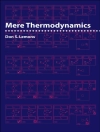In many biological models it is necessary to allow the rates of change of the variables to depend on the past history, rather than only the current values, of the variables. The models may require discrete lags, with the use of delay-differential equations, or distributed lags, with the use of integro-differential equations. In these lecture notes I discuss the reasons for including lags, especially distributed lags, in biological models. These reasons may be inherent in the system studied, or may be the result of simplifying assumptions made in the model used. I examine some of the techniques available for studying the solution of the equations. A large proportion of the material presented relates to a special method that can be applied to a particular class of distributed lags. This method uses an extended set of ordinary differential equations. I examine the local stability of equilibrium points, and the existence and frequency of periodic solutions. I discuss the qualitative effects of lags, and how these differ according to the choice of discrete or distributed lag. The models studied are drawn from the population dynami CS of single species (logistic growth, the chemostat) and of interacting pairs of species (predation, mutualism), from cell population dynami CS (haemopoiesis) and from biochemical kinetics (the Goodwin oscillator). The last chapter is devoted to a population model employing difference equations. All these models include non-linear terms.
N. MacDonald
Time Lags in Biological Models [PDF ebook]
Time Lags in Biological Models [PDF ebook]
¡Compre este libro electrónico y obtenga 1 más GRATIS!
Idioma Inglés ● Formato PDF ● ISBN 9783642931079 ● Editorial Springer Berlin Heidelberg ● Publicado 2013 ● Descargable 3 veces ● Divisa EUR ● ID 6383539 ● Protección de copia Adobe DRM
Requiere lector de ebook con capacidad DRM












